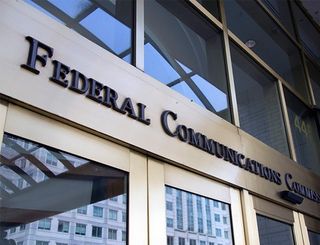NAB Takes Aim at Mega-Merged MVPDs

The National Association of Broadcasters says that given the size of MPVD behemoths like the newly combined Charter/Time Warner Cable, the recently combined AT&T/DirecTV and the not-so-recently merged Comcast/NBCU, the FCC is obligated to either repeal or loosen local ownership regs to allow them to better compete.
FCC Chairman Tom Wheeler has promised to circulate an item resolving 2010 and 2014 media ownership rule reviews mandated by Congress this month, and a federal court has recently signaled it has to do so ASAP--sources signaled that item will likely not circulate until the end of the month.
NAB, in a letter to the FCC, spent pages waving red flags about merging MVPDs and their market power while suggesting broadcasters were being prevented from competing with those behemoths due to unreasonable regs. "While the FCC in 2014 effectively prohibited one TV station from selling more than 15 percent of another same-market TV station’s advertising time, the Commission has approved numerous MVPD mergers despite the companies’ high shares of the entire MVPD marketplace in numerous local markets," said NAB.
Related: NAB Breaking Ground on New Digs
"As of last fall, according to Yahoo Finance," said NAB, "AT&T/DirecTV had a market capitalization of $201 billion and Verizon had a market cap of $182 billion, while TV station group owners such as Media General, Scripps and Nexstar had market caps of $1 billion each. Aside from the giant telcos, the largest cable operator (Comcast) had a market cap 142 times larger than these broadcasters, and the combined Charter/TWC/Bright House an estimated market cap 72 times larger."
NAB also argues that the rise in over-the-top options should signal the fall of barriers to broadcast ownership.
Related: NAB to FCC--White Spaces Devices Should Check All Channels
Broadcasting & Cable Newsletter
The smarter way to stay on top of broadcasting and cable industry. Sign up below
"Today, 51% of the U.S. population ages 12 and older have a subscription to Netflix, Amazon Prime and/or Hulu online video services that did not exist when the FCC last reformed the local TV ownership and the radio/television cross-ownership rules...In fact, there are now more Internet-connected TV devices in U.S. households than there are pay-TV set-top boxes."
Given all that competition for viewers and ad dollars, said broadcasters, "The Commission has no legal or public policy basis for ignoring the 'most important' competitive platform in the U.S. economy and retaining asymmetric regulations competitively disfavoring local broadcast TV stations and their video services offered free to all consumers."
Contributing editor John Eggerton has been an editor and/or writer on media regulation, legislation and policy for over four decades, including covering the FCC, FTC, Congress, the major media trade associations, and the federal courts. In addition to Multichannel News and Broadcasting + Cable, his work has appeared in Radio World, TV Technology, TV Fax, This Week in Consumer Electronics, Variety and the Encyclopedia Britannica.

